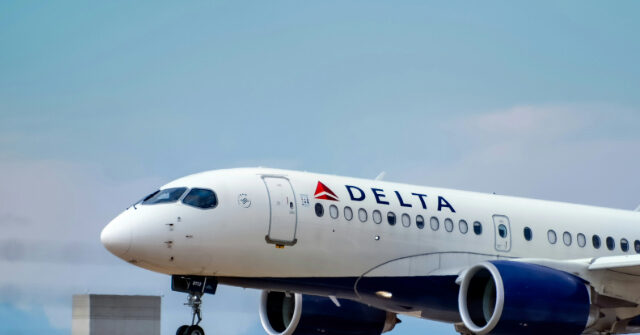Delta Air Lines has recently initiated a lawsuit against cybersecurity firm CrowdStrike in Georgia state’s Fulton County Superior Court, alleging that a faulty software update from CrowdStrike led to a significant global outage in July. This incident precipitated the cancellation of around 7,000 flights, which severely impacted the travel plans of approximately 1.3 million passengers over a five-day period. In its legal complaint, Delta is seeking damages exceeding $500 million, claiming that the outage has resulted in substantial out-of-pocket losses, diminished profits, reputational harm, and potential future revenue losses. The lawsuit emphasizes the operational chaos that ensued from this technical failure, painting a picture of an airline grappling with the fallout of a preventable incident.
The central claim in Delta’s lawsuit is that CrowdStrike delivered untested and defective software updates, which caused more than 8.5 million computers running on Microsoft Windows across various industries to crash worldwide. Delta has been a client of CrowdStrike since 2022, and its lawsuit underscores the belief that had CrowdStrike conducted appropriate tests on even one computer prior to the deployment of the update, the catastrophic issues could have been identified and mitigated. As a result, Delta asserts that its operational integrity was compromised due to the inability to remotely rectify the faulty update post-deployment, leading to considerable financial repercussions.
In its defense, CrowdStrike has adamantly denied the allegations presented by Delta, characterizing them as based on “disproven misinformation.” The cybersecurity firm claims that Delta’s assertions reveal a fundamental misunderstanding of modern cybersecurity practices and seem to serve as an attempt to deflect responsibility for what they term Delta’s outdated IT infrastructure. The clash of narratives highlights a stark contrast in the understanding of accountability within the cybersecurity and airline industries. CrowdStrike has maintained that Delta’s slow recovery from the outage is more a reflection of its internal systems rather than the shortcomings of CrowdStrike’s software.
The implications of the July incident stretched beyond Delta, affecting multiple sectors such as banking, healthcare, media, and hospitality. Consequently, the U.S. Transportation Department has launched an investigation into the matter, indicating the broader concern regarding cybersecurity in critical operational frameworks. The involvement of regulatory authorities suggests that this incident may instigate a wider discourse on the state of cybersecurity protocols and support, particularly regarding the vulnerabilities in modern IT systems utilized by major companies in various industries.
In response to mounting criticism and scrutiny, Adam Meyers, a senior vice president at CrowdStrike, issued an apology before a Congressional panel last month. He acknowledged that the release of a content configuration update for the Falcon Sensor security software was flawed and led to widespread system crashes. Meyers articulated the company’s commitment to learn from the incident and implement measures to avert similar occurrences in the future. The recognition of error from a high-ranking official within CrowdStrike adds another layer to the complex narrative surrounding the outage, creating a space for dialogue about future risk management and system robustness.
Ultimately, this legal battle between Delta and CrowdStrike underscores the ongoing challenges within the intersection of cybersecurity and infrastructure reliability. As both entities strive to articulate their perspectives, the outcome of this lawsuit could have far-reaching implications for the cybersecurity sector, airline operations, and the overarching principles of accountability and liability in situations involving technological failures. As both companies prepare for the anticipated legal proceedings, the focus on incident management, system resilience, and proactive testing protocols will likely shape future operational frameworks across various industries.

